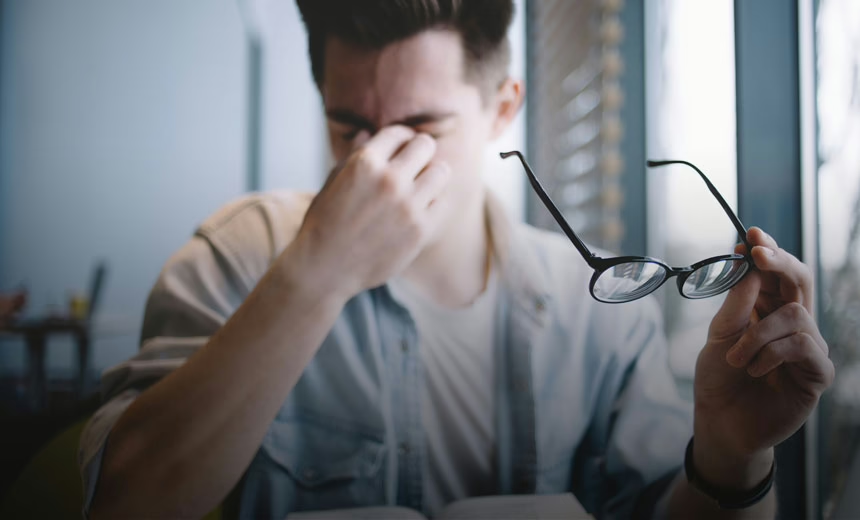Subscribe to eyeMatters periodic news
"*" indicates required fields
Tired eyes: A very real condition

‘My eyes feel tired!’ – sounds familiar, right? But is eyestrain a legitimate medical condition or just a symptom of a busy day? You might be surprised to find out that eyestrain is, in fact, the colloquial term for a real condition called asthenopia.
Symptoms of tired eyes
There are many symptoms associated with tired eyes, including:
- Light sensitivity
- Sore eyes
- Dry eyes/watery eyes
- Blurred vision
- Burning eyes
- Fatigue
- Difficulty reading
- Headaches
- Nausea.
What causes eyestrain?
There are a number of factors that can cause eyes to feel strained, such as lack of sleep, crying, exposure to very bright light or prolonged periods of intense focus while driving, reading or working at the computer.
Research has shown that many of the devices we’re so reluctant to put down have a negative impact on eye health. Frequent use of smartphones, tablets and laptops, surfing the internet, text messaging and reading emails all place strain on our eyes. Other contributors are exposure to tobacco smoke, pollution, dust in the atmosphere or dryness from air conditioning.
Some prescription drugs can cause eyes to feel tired and, if this is the case, it’s important to seek more information from a doctor to discover if alternative treatments are available.
Beyond the effects of everyday modern living, there is a condition called Sjogren’s syndrome, an autoimmune condition that is associated with rheumatoid arthritis and results in very similar symptoms.
Chronic dry eye
This is often the result of eyes that cannot produce sufficient tears and is another condition that can make eyes feel tired and strained. Often, artificial tears can help alleviate this problem, but an ophthalmologist or doctor should be consulted to determine the best course of treatment.
Is it time for a new prescription?
Finally, there are vision problems that may be alleviated by something as simple as glasses or contact lenses. If glasses/contacts are already worn, it might be time for a new prescription.
Treatment
If a patient believes that their lifestyle is the cause of eyestrain and tiredness, the first step is to change a few habits – spend less time on the computer, reading fine print or text messages. Or, try to get more sleep. Sometimes just a short break can allow the eyes to recover and alleviate the symptoms. If this doesn’t help, a trip to the optometrist for an eye examination could do the trick.
The information on this page is general in nature. All medical and surgical procedures have potential benefits and risks. Consult your ophthalmologist for specific medical advice.
Date last reviewed: 2022-10-05 | Date for next review: 2024-10-05
